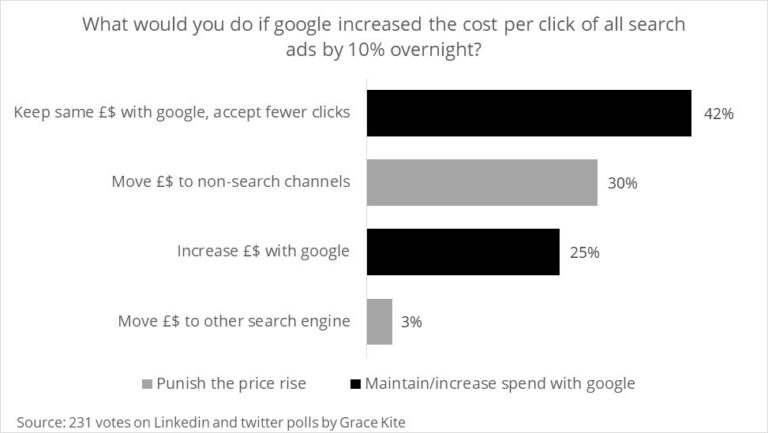The competition cases against Google are the biggest legal battle marketing has ever seen. How they are resolved will decide the choices marketers have for decades to come. Everyone with a marketing budget will be affected.
And it’s possible that the lawyers and economists involved are missing something.
Evidence has been accumulating on the marketing front lines that search ads often don’t do the same thing that other advertising does. Other advertising builds demand, while search often acts to make products available online.
This is directly relevant to the question of whether Google has market power.
If search ads can be substituted with other media channels, Google is a big, but not huge, media owner in a landscape also populated by broadcasters, radio stations, and owners of poster hoardings.
But if they do a different job, one that other channels can’t do, Google is dominant in a search-only market and vulnerable to having its activities restricted under competition law.
The acid test
To test whether Google competes with other media channels, economists will analyse what happens when the price of Google search ads go up by 5-10%.
If marketers keep their budgets with Google and accept fewer clicks, or spend more to maintain volumes, it shows that there’s an absence of serious competition. That there are no other media choices that are close substitutes for Google search ads. That Google is free to increase prices and make more profits at the expense of advertisers.
In the cases, a lot of effort will go into analysing real-world data. Economists will look at instances of increasing prices and analyse the response. No doubt the short answer will be that it’s different in different circumstances. Understanding the complexity and coming to an overarching conclusion will take years.
But this is not just a question for economists and lawyers. It’s a question for marketers – both those who spend marketing budgets, and those who study marketing and offer advice.
And many do feel able to comment. The chart below shows the results of a polling exercise on social media that asked the ‘what if?’ question.

